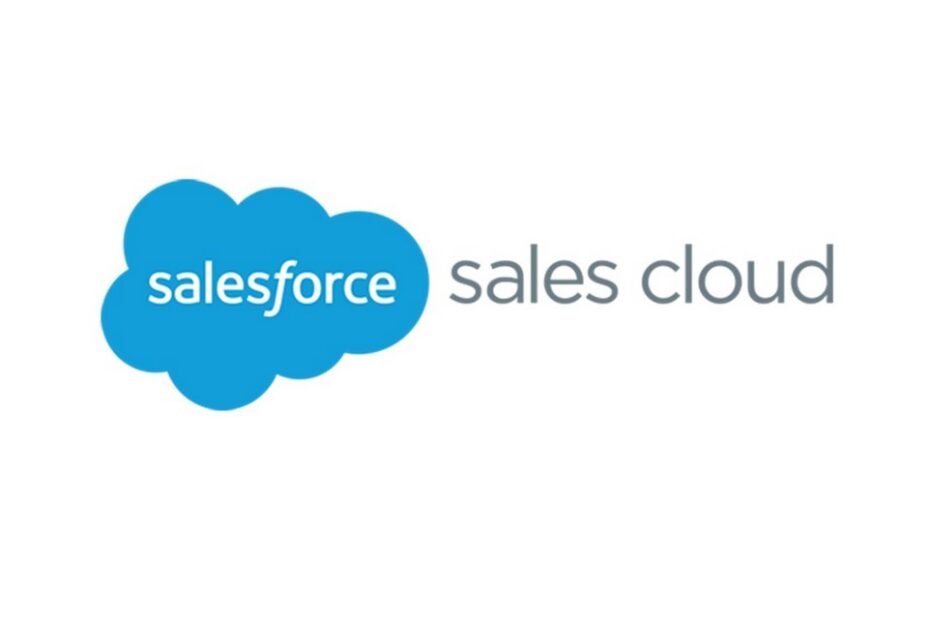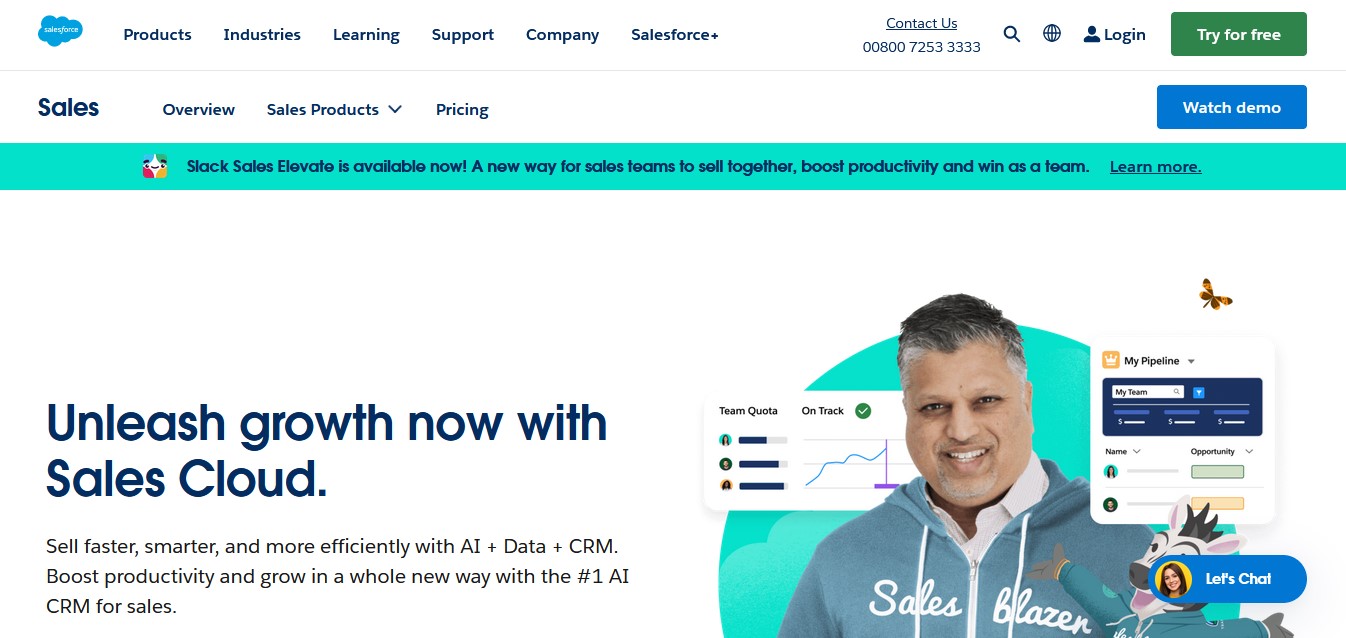Salesforce Sales Cloud is a powerful and versatile CRM platform that has revolutionized the way businesses manage their sales processes. With its wide range of features and capabilities, it offers organizations the tools they need to streamline their sales operations and boost productivity. However, as with any software solution, understanding Salesforce Sales Cloud pricing, features, reviews, and alternatives is crucial for making an informed decision. In this article, we will delve into these aspects to help you determine if Salesforce Sales Cloud is the right fit for your business or if there are alternative solutions worth considering.
Salesforce Sales Cloud Overview
Salesforce Sales Cloud is a customer relationship management (CRM) platform that helps businesses manage their sales processes and improve overall sales performance. It provides a wide range of features and functionalities to streamline sales activities, automate tasks, and enhance collaboration among sales teams.
One of the key features of Salesforce Sales Cloud is its lead management capabilities. It allows businesses to track and manage leads from various sources, assign them to specific sales representatives, and monitor their progress throughout the sales pipeline. This helps ensure that no leads are lost or neglected, increasing the chances of converting them into customers.
Another important aspect of Salesforce Sales Cloud is its opportunity management functionality. It enables businesses to effectively track and manage potential deals, including tracking the stage of each opportunity, forecasting revenue, and analyzing win rates. This allows sales teams to prioritize their efforts, focus on high-value opportunities, and make informed decisions based on real-time data.
Overall, Salesforce Sales Cloud provides businesses with a comprehensive CRM solution that empowers sales teams to work more efficiently and effectively. Its robust features and intuitive interface make it a popular choice for organizations looking to optimize their sales processes and drive revenue growth.
Pricing: Different plans and pricing options
Salesforce Sales Cloud offers several different plans and pricing options to cater to the diverse needs of businesses. The pricing structure is based on a per user, per month basis, and there are three main editions available: Essentials, Professional, and Enterprise.
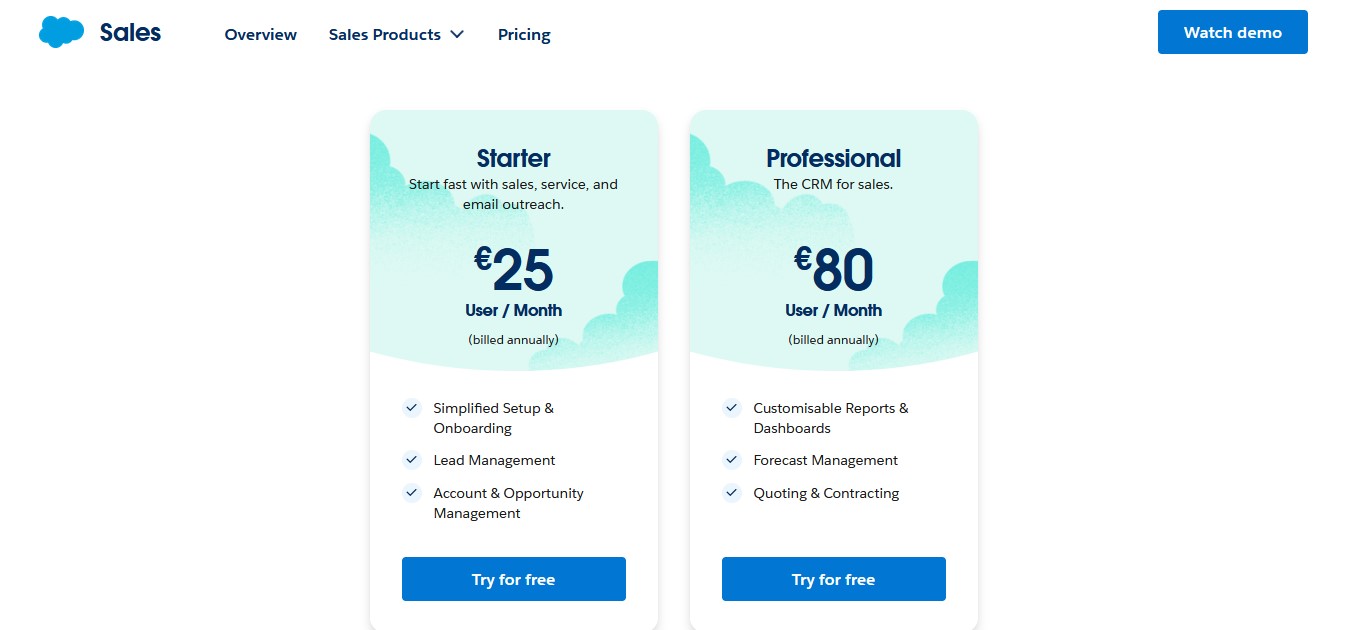
The Essentials edition is the most basic plan, designed for small businesses with up to 10 users. It includes core CRM features such as lead and contact management, opportunity tracking, and email integration. The pricing starts at $25 per user per month.
The Professional edition is more comprehensive and suitable for mid-sized businesses. It includes additional features like forecasting, workflow automation, and customizable dashboards. The pricing for this edition starts at $75 per user per month.
The Enterprise edition is the most advanced plan offered by Salesforce Sales Cloud. It includes all the features from the previous editions along with additional functionalities like territory management, advanced reporting, and API integrations. The pricing for this edition starts at $150 per user per month.
In addition to these standard plans, Salesforce also offers add-ons and customization options that can be tailored to specific business requirements. These may include additional storage space, enhanced support services, or industry-specific solutions.
Overall, Salesforce Sales Cloud provides a range of pricing options to suit businesses of all sizes and budgets. It’s important to carefully evaluate your organization’s needs and choose the plan that best aligns with your goals and objectives.
Features: Key features of Salesforce Sales Cloud
Salesforce Sales Cloud is a robust customer relationship management (CRM) platform that offers a wide range of features to help businesses streamline their sales processes and drive revenue growth. Some key features of Salesforce Sales Cloud include:
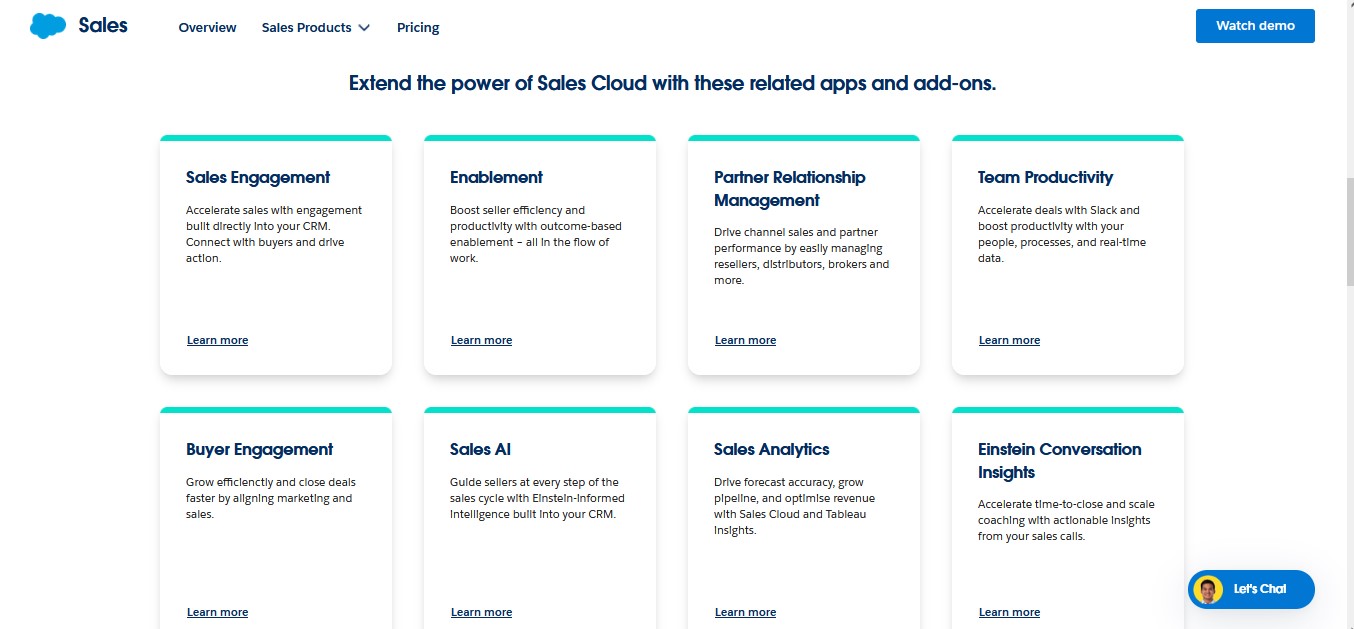
1. Lead Management: Salesforce Sales Cloud allows businesses to capture, track, and manage leads from various sources in one centralized system. It provides tools for lead scoring, lead assignment, and lead nurturing to help sales teams prioritize their efforts and convert leads into customers.
2. Opportunity Management: This feature helps sales teams effectively manage their pipeline by tracking deals at every stage of the sales process. Salesforce Sales Cloud provides visibility into key metrics such as deal size, close dates, and win probability, enabling sales reps to focus on high-value opportunities and improve forecasting accuracy.
3. Sales Performance Tracking: With Salesforce Sales Cloud, businesses can monitor the performance of their sales teams through real-time dashboards and reports. This feature allows managers to track key performance indicators (KPIs), such as revenue generated, conversion rates, and quota attainment, helping them identify areas for improvement and make data-driven decisions.
Overall, Salesforce Sales Cloud offers a comprehensive set of features designed to enhance sales efficiency and effectiveness. Its intuitive interface, customizable workflows, and integration capabilities make it a popular choice among businesses looking to optimize their sales processes and drive growth.
Reviews: User reviews and testimonials
Salesforce Sales Cloud is a widely popular customer relationship management (CRM) platform that has received positive reviews from users across various industries. Many users appreciate its robust features and functionality, which help streamline sales processes and improve overall efficiency. The ability to track leads, manage contacts, and automate tasks has been particularly praised by users, as it allows for better organization and more effective communication with clients.
In addition to its powerful features, Salesforce Sales Cloud also offers excellent customer support and training resources. Users have reported receiving prompt assistance from the Salesforce team when encountering any issues or needing guidance on how to fully utilize the platform’s capabilities. The availability of online tutorials, webinars, and a vast community of experienced users further enhances the user experience and ensures that users can make the most out of their Salesforce investment.
Overall, user reviews for Salesforce Sales Cloud are overwhelmingly positive, with many praising its comprehensive functionality, ease of use, and exceptional customer support. Whether you’re a small business owner or part of a large enterprise, Salesforce Sales Cloud offers a reliable CRM solution that can significantly enhance your sales operations.
Alternatives: Other CRM software options to consider
There are several CRM software options that can be considered as alternatives to Salesforce Sales Cloud. One popular alternative is HubSpot CRM, which offers a user-friendly interface and robust features for managing sales processes. It integrates seamlessly with other HubSpot tools such as marketing automation and customer service, providing a comprehensive solution for businesses.
Another alternative to consider is Zoho CRM, which is known for its affordability and scalability. It offers a wide range of features including lead management, contact management, and sales forecasting. Zoho CRM also provides integrations with other popular business tools such as G Suite and Microsoft Office 365.
Ultimately, the choice of CRM software depends on the specific needs and preferences of your business. It’s important to evaluate factors such as pricing, features, ease of use, and integration capabilities before making a decision.
Different pricing tiers and their features
Salesforce Sales Cloud offers different pricing tiers to cater to the needs of various businesses. The pricing tiers include Essentials, Professional, Enterprise, and Unlimited.
The Essentials tier is designed for small businesses and startups with basic sales needs. It includes core CRM functionality such as lead management, contact management, opportunity tracking, and email integration. This tier also offers customizable dashboards and reports, as well as mobile access.
The Professional tier is suitable for growing businesses that require more advanced features. In addition to the functionalities offered in the Essentials tier, it provides additional features like forecasting, collaborative forecasting, and territory management. It also includes access to the Salesforce AppExchange marketplace for third-party integrations.
The Enterprise tier is ideal for larger organizations with complex sales processes. It includes all the features from the Professional tier and adds capabilities like workflow automation, approval processes, advanced reporting and analytics, and multiple sandboxes for testing and development.
The Unlimited tier is the most comprehensive offering from Salesforce Sales Cloud. It includes all the features from the lower tiers along with unlimited customization options, 24/7 support, unlimited online training resources, and additional data storage capacity.
It’s important to note that pricing may vary depending on factors such as user count and contract duration. It’s recommended to reach out to Salesforce directly or consult a Salesforce representative for accurate pricing information tailored to your specific business needs.
Cost comparison with other CRM solutions
When comparing the cost of Salesforce Sales Cloud with other CRM solutions, it is important to consider a few factors. Firstly, Salesforce Sales Cloud offers a range of pricing options to cater to different business needs. The pricing is based on the number of users and the features you require, so it can be customized to fit your budget.
Secondly, Salesforce Sales Cloud has a reputation for being one of the most robust and feature-rich CRM solutions in the market. It offers a wide range of functionalities such as lead management, opportunity tracking, forecasting, and analytics. While there may be cheaper CRM solutions available, they might not offer the same level of functionality and scalability as Salesforce Sales Cloud.
Lastly, it is worth considering the long-term benefits that Salesforce Sales Cloud can bring to your business. With its extensive ecosystem and integration capabilities, it can help streamline your sales processes and improve productivity. Additionally, Salesforce has a strong track record of innovation and regularly releases updates and new features to enhance user experience.
In conclusion, while Salesforce Sales Cloud may have a higher price tag compared to some other CRM solutions, its comprehensive features and long-term benefits make it a worthwhile investment for businesses looking to optimize their sales processes.
How these features can benefit businesses
Salesforce Sales Cloud offers a range of features that can greatly benefit businesses in multiple ways. Firstly, the platform provides a comprehensive view of customer data, allowing businesses to have a holistic understanding of their customers’ preferences, needs, and purchase history. This enables businesses to tailor their sales strategies and approach to individual customers, resulting in more personalized and effective sales interactions.
Additionally, Salesforce Sales Cloud offers robust sales forecasting capabilities. By analyzing historical data and trends, businesses can accurately predict future sales and make informed decisions regarding resource allocation and target setting. This helps optimize sales performance and ensures that businesses are well-prepared for future demands.
Furthermore, the platform enables seamless collaboration among team members by providing real-time access to customer information and communication history. This fosters better teamwork, coordination, and knowledge sharing within the organization, ultimately leading to improved customer satisfaction and increased sales productivity.
Overall, Salesforce Sales Cloud features empower businesses with valuable insights into customer behavior, enable accurate sales forecasting, and facilitate efficient collaboration among team members. These benefits contribute to enhanced sales performance and overall business success.
Pros and cons of using Salesforce Sales Cloud
Salesforce Sales Cloud is a powerful CRM tool that offers numerous benefits for businesses. One major advantage is its ability to streamline sales processes and improve productivity. With Sales Cloud, sales teams can easily track leads, manage accounts, and automate tasks, allowing them to focus more on closing deals. Additionally, the platform provides real-time insights and analytics, enabling businesses to make data-driven decisions and optimize their sales strategies.
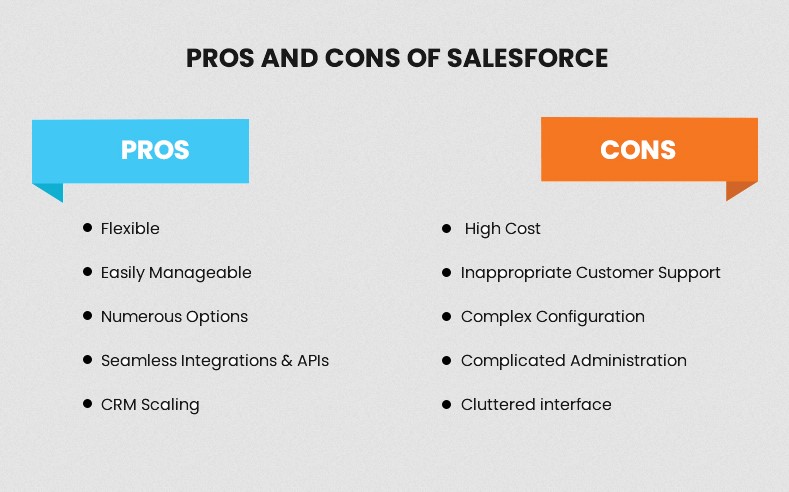
Another benefit of using Sales Cloud is its scalability and customization options. The platform can be tailored to fit the unique needs of different industries and business sizes. Whether you’re a small startup or a large enterprise, Salesforce offers a range of features and integrations that can be customized to align with your specific requirements. This flexibility allows businesses to adapt and grow with changing market conditions.
However, there are also some potential drawbacks to consider when using Salesforce Sales Cloud. Firstly, the pricing structure can be quite expensive for small businesses or startups with limited budgets. The cost of licenses, add-ons, and implementation services can quickly add up, making it less accessible for smaller organizations.
Additionally, while Salesforce offers extensive customization options, it can sometimes require technical expertise or assistance from developers to fully leverage these capabilities. This may pose challenges for businesses without dedicated IT resources or in-house technical knowledge.
Overall, Salesforce Sales Cloud is a robust CRM solution that offers numerous benefits for businesses looking to enhance their sales processes.
Comparison of features and pricing
Salesforce Sales Cloud is a popular customer relationship management (CRM) platform that offers a range of features to help businesses manage their sales processes effectively. When it comes to comparing features, Salesforce Sales Cloud stands out with its robust set of tools. It provides comprehensive lead and opportunity management, contact and account management, sales forecasting, email integration, and customizable reports and dashboards.
In terms of pricing, Salesforce Sales Cloud offers different editions to cater to the needs of various businesses. The pricing is tiered based on the number of users and the functionalities required. The Essentials edition starts at $25 per user per month and provides basic CRM functionality. The Professional edition, priced at $75 per user per month, offers more advanced features such as workflow automation and collaborative forecasting. For larger enterprises with complex sales processes, the Enterprise edition at $150 per user per month provides additional customization options and access to more advanced analytics.
Overall, Salesforce Sales Cloud is a feature-rich CRM solution that can cater to the needs of businesses of all sizes. However, it’s important for organizations to carefully evaluate their specific requirements and budget before choosing an edition that best suits their needs.
Conclusion
In conclusion, Salesforce Sales Cloud is a powerful CRM solution that offers a wide range of features and functionalities to streamline sales processes. Its pricing structure can be affordable for small businesses if they opt for the basic editions but may become more costly as additional features and customizations are added. Despite some limitations, such as the need for third-party integrations in certain cases, Salesforce Sales Cloud remains one of the top choices for businesses looking to boost their sales productivity.
However, it is essential to consider alternatives before making a final decision. One alternative worth exploring is HubSpot CRM, which provides similar features at a lower cost and with no usage limits. Another option is Zoho CRM, known for its user-friendly interface and deep integration capabilities. By thoroughly evaluating these alternatives while considering your business’s unique requirements and budget constraints, you can make an informed choice that aligns with your long-term goals.
In summary, Salesforce Sales Cloud offers a comprehensive set of tools to enhance sales efficiency, but its pricing may vary depending on individual needs. Exploring alternative options like HubSpot CRM and Zoho CRM can help identify solutions that offer similar functionality at potentially lower costs. Ultimately, the right choice will depend on careful consideration of your specific business requirements and financial parameters.
